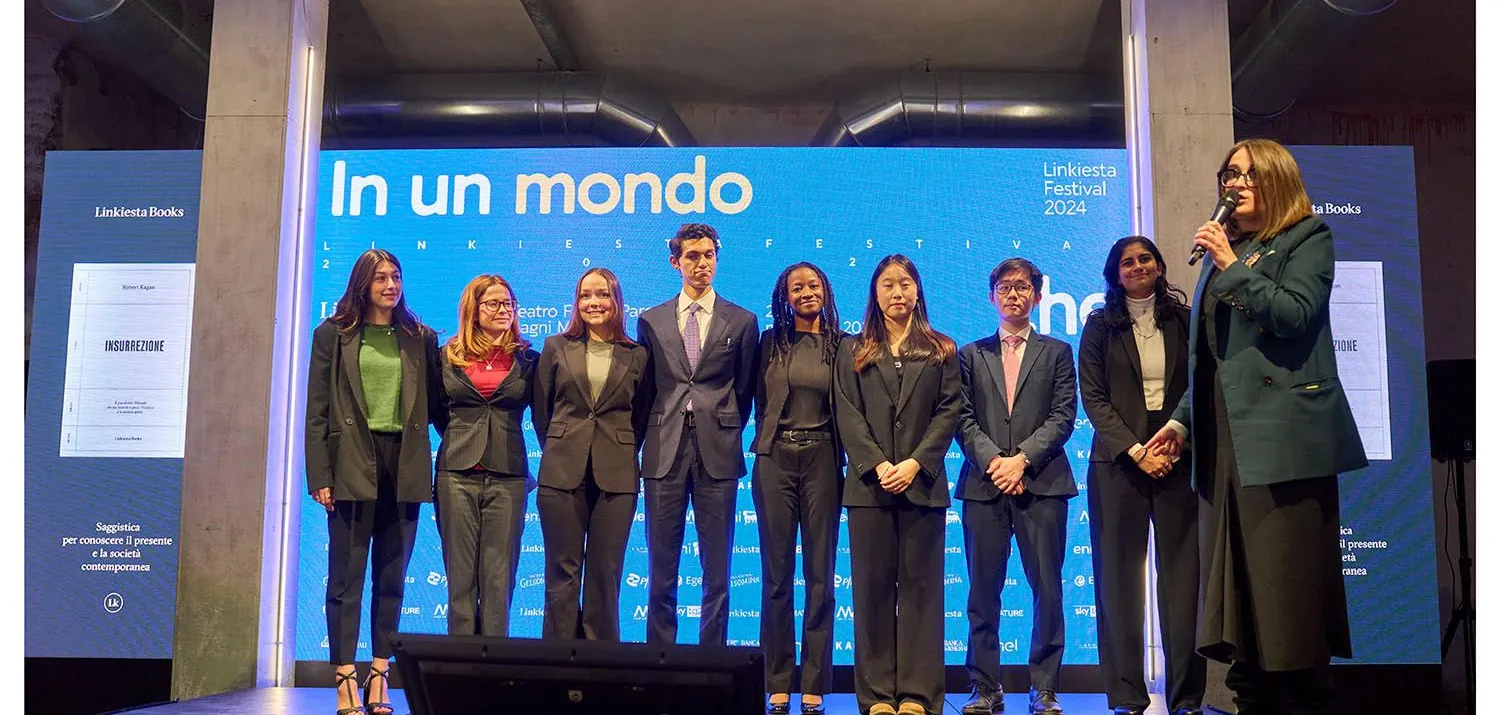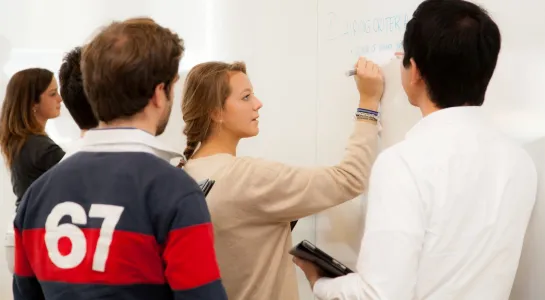
In the Field to Study Democracy
What does democracy look like in today’s world? In a time when democratic principles are increasingly tested in various countries around the world, students of the World Bachelor in Business, within the Public Law course directed by Justin Frosini, took on a first hand analysis to explore this question. Tasked with investigating the state of democracy across various countries, the students didn’t settle for textbook analysis but went beyond classroom walls, engaging with experts, to capture the complexities of democracy in action.
The students, divided into groups, analysed the state of democracy in various countries, from Iran to Afghanistan, from Ukraine to Georgia. For their analysis, they talked to experts, lawyers, journalists and more and interviewed representatives of Human Rights NG0s. They then framed their results into various formats, ranging from podcasts to video documentaries to websites.
“The idea for this teaching project was to highlight to students that democracy is not merely a theoretical concept but a value that needs to be understood deeply, continually monitored and protected. Even in areas where it might not seem so under threat compared to where there is conflict or autocratic regimes,” explains Viktoriia Lapa, lecturer in Public law who coordinated the initiative. “We wanted students to immerse themselves in their analysis, not through books or other abstract ways, by relating with people who touch first hand such criticalities around the world. And to understand how they can be active by including in their projects a call to action—small, practical steps that citizens can take to support the democratic cause.”
During the ‘Democracy Festival’ students then presented their projects to a panel of judges made up of professors, human rights activists and outside experts and all the class also had a say in the voting. The top three teams were given the opportunity to present their projects at the 2024 Linkiesta Festival held at the Teatro Franco Parenti in Milan.
“After discussing various options my group decided to focus on the issue of democracy in Venezuela and problems related to the elections of last summer. To gather information we reached out to a Venezuelan professor here in Milan and an expert at Human Rights Watch and to showcase our findings we created a video with footage, comment and interviews,” explains Max Garibay-Deasy. “Growing up in the US I have taken democracy for granted but this is a mistake not to be made. It is a value that must be defended and we as students must not wait for when we graduate – it is an issue that can’t be postponed and we can have an impact and draw attention even now as students.”
“India is regarded as one of the great democracies but the reality is not so simple so we decided to look closer at the democracy levels in politics and in civil society. We talked to journalists, students and politicians in India,” explains Arianna Dilonardo. “For our presentation we decided on 3 podcasts, looking at freedom of speech, the power of religion and the political foundations of the country, that we have published on Spotify. I found it very interesting to compare my reality with that of another country in detail, there is much to learn. And we had the fortune that we were chosen as one of the groups to present at the Linkiesta Festival which was such great experience.”
In addition to the project on India, the other projects presented at the Festival looked at the role of Ukranian women on the frontline (who represent nearly a quarter of the armed forces but are underrepresented in the positions of command)) and the resistance of women, and the men who flank them, in Iran.
